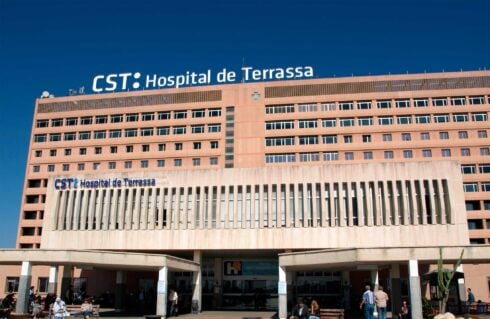MORE than 100,000 people die of cancer each year in Spain and it is estimated that over 280,000 new cases will be detected in 2022.
Friday, February 4 is World Cancer Day, an international day of awareness led by the Union for International Cancer Control (UICC).
The day was established in 2000, with the aim of reducing preventable cancer deaths by raising awareness, improving education and urging governments to take action.
Cancer can come in many forms and in many places. In turn, it requires many different kinds of treatment too.
Cancer can spread through the body undetected and the bigger it gets, the more treatment is needed to fight it. This is why early detection is so important.
Scientists in Spain believe that this year bowel cancer will remain the most common cancer in Spain, with 43,370 new cases predicted to be diagnosed in 2022. Next on the list is breast cancer (34,750 cases), lung (30,948), prostate (30,884) and urinary bladder (22,295).
Awareness of symptoms is the first step to beating cancer. If patients are diagnosed at an early stage they are more likely to survive because different treatment options are available for them. Here are the symptoms to look out for.

Colorectal cancer
In recent years bowel cancer, otherwise known as colorectal cancer, has become the most commonly diagnosed cancer in Spain.
The number of colorectal cancer diagnosis have increased by 4.7% in the last five years and those suffering from bowel cancer have the second highest mortality rate among cancer patients.
It affects the large intestine and symptoms of bowel cancer can include a change in your bowel habits, blood in your stools, weight loss, pain in your abdomen or back, fatigue and feeling as though you need to strain your back package, even after going to the toilet.
Cancer may also cause bowel obstruction, which is when passing stool or gas is either harder than usual or impossible.
When bowel obstruction occurs, you may experience cramping, bloating, constipation or nausea.
It’s advised that you see your doctor or go to A&E immediately if you think you may have a bowel obstruction.
Breast cancer
Breast cancer is the most common form of cancer for women in Spain. Despite this, a large number of women don’t check their breasts regularly for changes. A recent study revealed that one in four women admit they have never examined their breasts or can’t remember the last time they did.
About 1 in 8 women are diagnosed with breast cancer during their lifetime. There’s a good chance of recovery if it’s detected at an early stage.
Lots of women have breast lumps and nine out of 10 are not cancerous.
Despite this, unusual changes in your breast should be checked out with a doctor as soon as possible.
Lung cancer
The good news is that research has revealed that 79% of cases are preventable with almost three quarters (72 per cent) caused by smoking.
A further 8% of cases are a result of air pollution.
Lung cancer can often go unnoticed as many patients do not initially experience symptoms, which is often as minor as a persistent cough.
If left untreated, the cough will get worse over time and soon patients will be coughing up blood or rust-coloured spit.
Other common symptoms to be aware of include chest pain that is often worse with deep breathing, recurrent chest infections, tiredness, or unexplained weight loss.
More unusual signs to watch out for include swelling in the face or neck, hoarseness and swollen finger tips.
Make sure to check for changes, unexplained or persistent issues and speak to your doctor if you are concerned.

Ovarian cancer
Ovarian cancer mainly affects women who have been through the menopause (usually aged 50 and older), but it can sometimes affect younger women.
The most common symptoms of ovarian cancer are bloating, pelvic or abdominal pain, trouble eating or feeling full quickly, and changes in urinary habits
Other symptoms include extreme tiredness, back pain, constipation or pain during sex.
It’s important to remember that these symptoms are often caused by benign diseases but when they are caused by ovarian cancer they tend to be persistent and are more often or severe.
Unusual changes should be checked out with a doctor as soon as possible.
Prostate cancer
Older men are far more susceptible to get prostate cancer. Between 2016-2018, 34% of diagnosed cases were men aged 75 or over.
Symptoms include needing to pee more frequently, often during the night and having to rush to the toilet. Cancer sufferers may also experience a wee flow, the feeling that their bladder has not emptied fully or blood in urine or semen.
None of the above symptoms mean you necessarily have prostate cancer and it is also important to note that prostate enlargement, something that can occur naturally as a person gets older, is often a non-cancerous condition called benign prostatic hyperplasia (BPH).
The growing prostate gland can press on the urethra.
Regular checks are already important, particularly for men over 50. Black men and men with a family history of prostate cancer are also more susceptible.
Urinary bladder cancer
Blood in your urine is the most common symptom of bladder cancer. Patients may notice streaks of blood in their urine or the blood may turn the urine brown. The blood isn’t always noticeable and it may come and go.
Less common symptoms of bladder cancer include a need to use the bathroom on a more frequent basis and a burning sensation when you go.
If bladder cancer reaches an advanced stage and has spread, symptoms can include pelvic and bone pain, unintentional weight loss and swelling of the legs
If you have blood in your urine – even if it comes and goes – you should visit your doctor, so the cause can be investigated.
READ ALSO:
Click here to read more Health News from The Olive Press.








